Rice research in the Philippines
Utrecht plant scientist on field visit
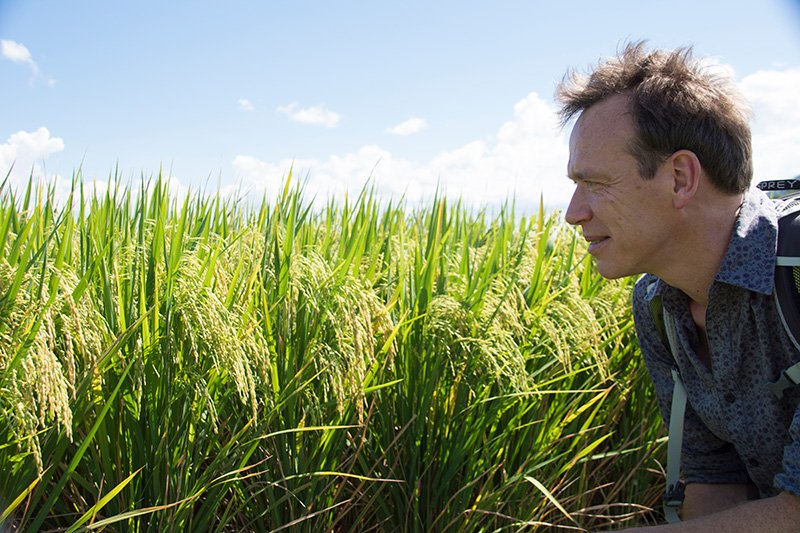
The Utrecht plant scientist Ronald Pierik is working with the Philippine rice institute IRRI to improve the resistance of rice to weeds. He was in the Philippines for field experiments.
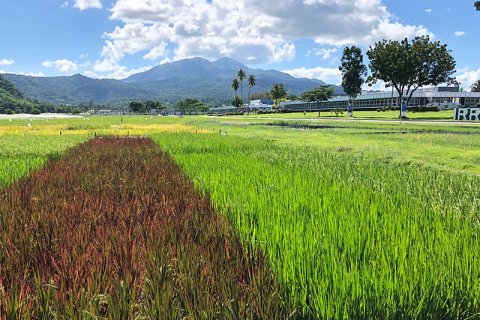
Did you know that rice does not have to be grown under water? In many countries, they flood rice to keep weeds out. "But that's time-consuming: the rice has to be planted plant by plant. Farmers would prefer to sow rice, but then rice will no longer have an advantage over weeds and will quickly become overgrown”, Pierik explains.
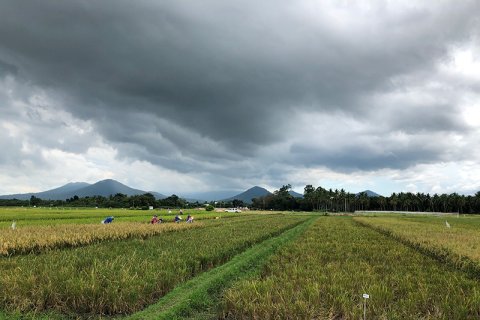
Together with Utrecht plant researchers, the IRRI rice institute in the Philippines is experimenting with different varieties. "People are working here to harvest the rice, so that the yield of different varieties can be determined under non-inundated soil conditions.”
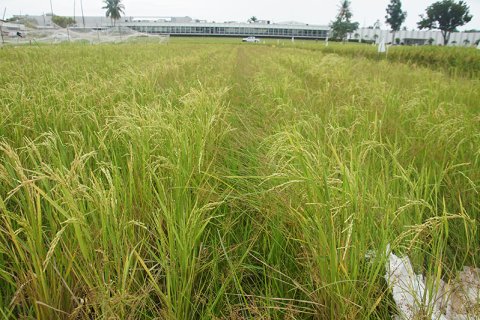
More and more weeds are becoming resistant to flooding. Flooding the rice is no longer a solution. “Here you can see the weeds growing between the rice.” Rice researchers in the Philippines and in the Botanic Gardens in Utrecht are therefore investigating the ideal growing conditions for rice by experimenting with light, water, density and rice varieties.
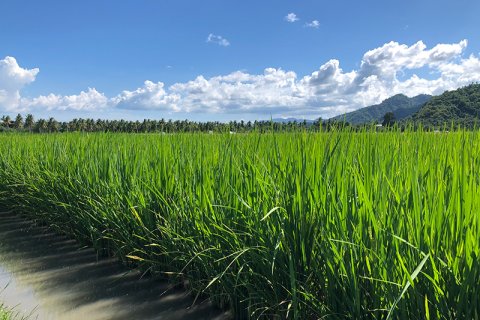
"For example, you can cross several lines and combine this with a changing water regime. By flooding the rice fields very high at an early stage, then dropping them dry again and then flooding them again, you might be able to kill the weeds", says Pierik.
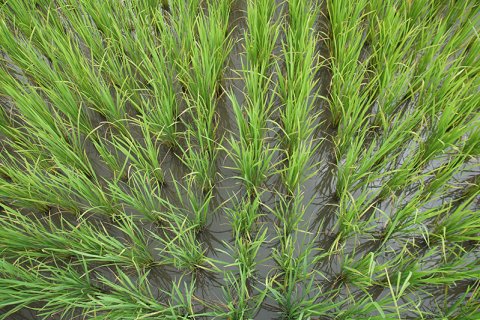
Rice grows compactly, so a lot of light reaches the ground and weeds get a chance there if they are not flooded. By studying shadow reactions in plants, the researchers are trying to change this. "Plants naturally try to capture an optimal amount of sunlight and use information about neighbouring plants to do so.
The plant Arabidopsis (the sand rocket) adjusts its growth direction as soon as points of the leaves meet", explains Pierik. Scientists in the Philippines and the Utrecht Botanic Gardens are trying to implement this system in rice, in order to set in motion an architecture at an early stage that reduces the amount of light that falls on the ground and can suppress weeds.
The rice study is conducted by the Plant Ecophysiology research group. In the project the following Utrecht researchers participate: Rashmi Sasidharan, Kaisa Kajala, Hans van Veen, Martina Huber, Justine Toulotte and Ronald Pierik.

